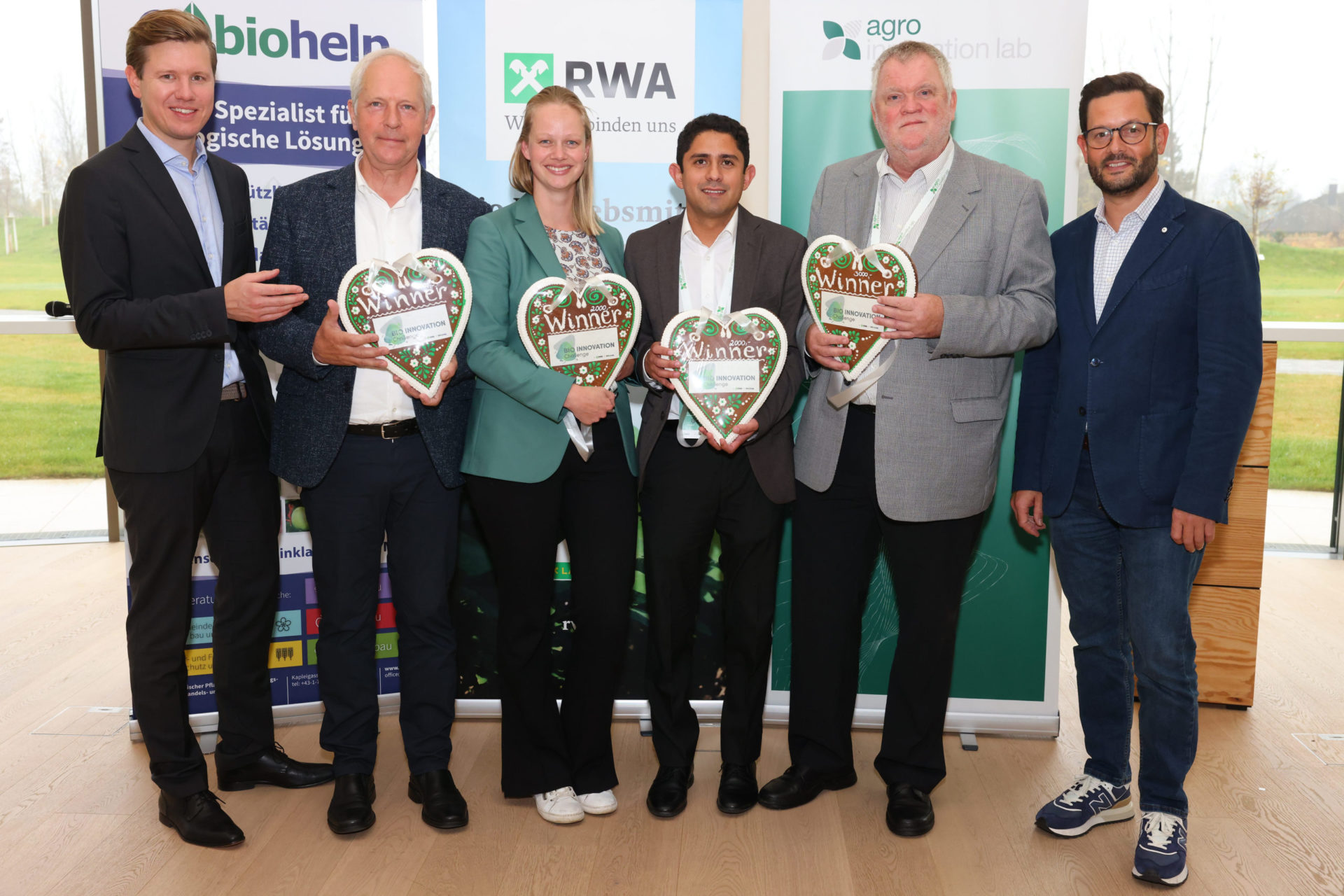The Bio Innovation Challenge 2022 was one of the highlights of the AIL year. It was launched to identify innovations in the field of organic plant protection products. Out of 72 entries from 21 countries, the TOP 10 were invited to Korneuburg to present their products in person. And, in addition to the startups, the guests included high-ranking participants from research, industry and interest groups.

Agriculture is facing great challenges due to the European Commission’s Green Deal, which will significantly reduce the use of plant protection products by 2030. The Agro Innovation Lab, together with biohelp and RWA, responded by initiating the “Bio Innovation Challenge”, which attracted entries from 72 startups, university spin-offs, companies and individual research groups from over 20 countries. The objective was to find new solutions for organic agriculture.
Bio Innovation Days 2022
The Bio Innovation Days, which took place on 14th and 15th November 2022 in Korneuburg, were the highlight of the Innovation Challenge program. The teams behind ten of the entries had the opportunity to pitch their innovations to a jury and representatives from business, research and farmers – with the best being awarded prizes. Technical discussions – on topics such as approvals and modes of action – also played a key part during the two days. In addition to workshops on a range of topics, the program was packed with top-class contributions. Wolfgang Burtscher, Director General for Agriculture of the European Commission, emphasised the importance of the rapid development of biological alternatives if we are to ensure the sustainability of the global food supply. And in her keynote address, Jennifer Lewis, Executive Director of the IBMA (International Biocontrol Manufacturers Association), spoke about the role of biocontrols in the future of agriculture and the impact of their development on the climate, public health, biodiversity and the economy.
Innovation boosters from around the world
The selected startups came from Poland, Chile, the USA, the Netherlands, Germany, Israel, Austria, India, Switzerland and Mexico. The prerequisite for submission was that products must be new, innovative and ready for initial field testing. All the participants convinced the jury with their high-quality approaches.
According to Christoph Metzker, Member of the Executive Board of RWA, “the goal of our Bio Innovation Challenge was to find new, groundbreaking products and approaches. Our expectations were more than met and we were delighted to reward four exciting projects that show real potential for wider application.”
The winners
Prizes were awarded to a total of four projects with convincing pitches.
And prizes of EUR 2,000 each went to:
- Ceradis from the Netherlands: CeraMax is used in cereal, soya bean and maize cultivation to treat seeds effectively against diseases such as Fusarium. The active ingredient is suitable for the treatment of a broad range of fungal infections.
- Bioamin from Mexico: The plant-based fungicide combines the traditional use of Larrea tridentate, a medicinal plant found in the desert, with an innovative process that isolates effective organic components and, hence, makes it suitable for application to organic fruit and vegetables.
Prizes of EUR 3,000 each went to:
- EcoSafe from Austria: The company specialises in the production of insecticides and acaricides that are based on a novel, insect-pathogenic fungus. One particularly exciting aspect of the product is its minimal impact on bees and other animals in the ecosystem.
- ESCApe from Germany: ESCApe is a novel carrier technology that is designed to cure the grapevine disease ESCA. Active substances are applied to the pest with the help of a lignin-based capsule, whose precision enables them to act effectively.
